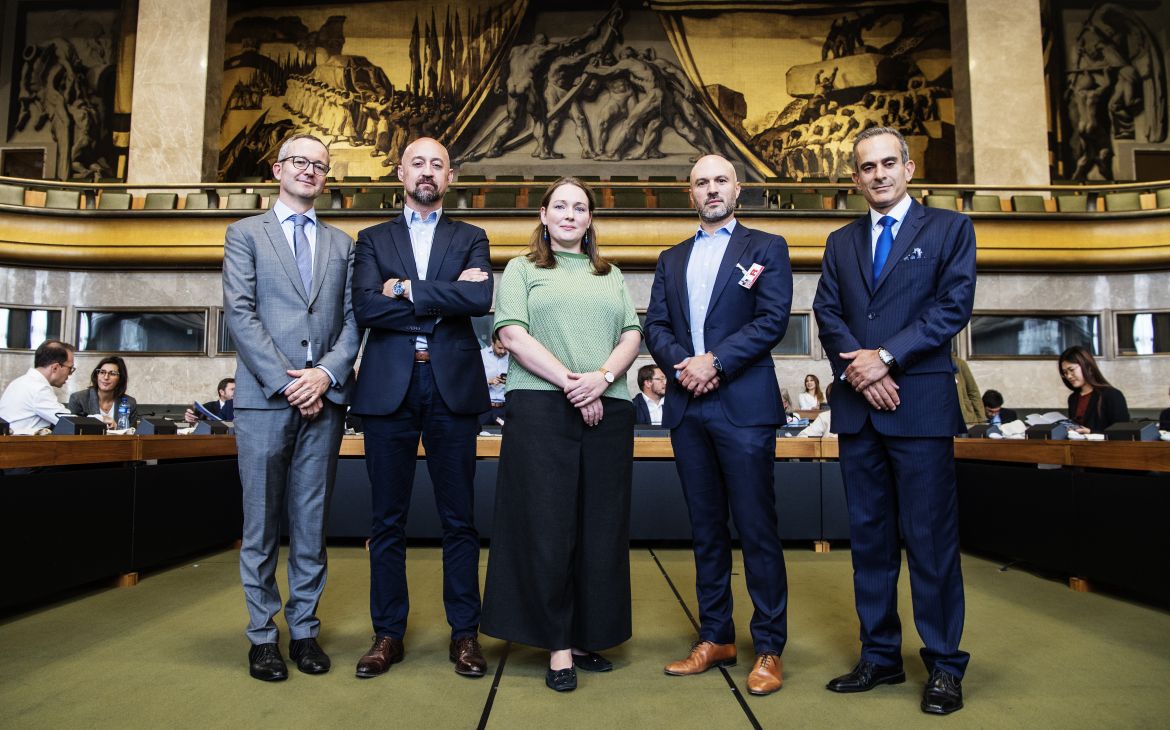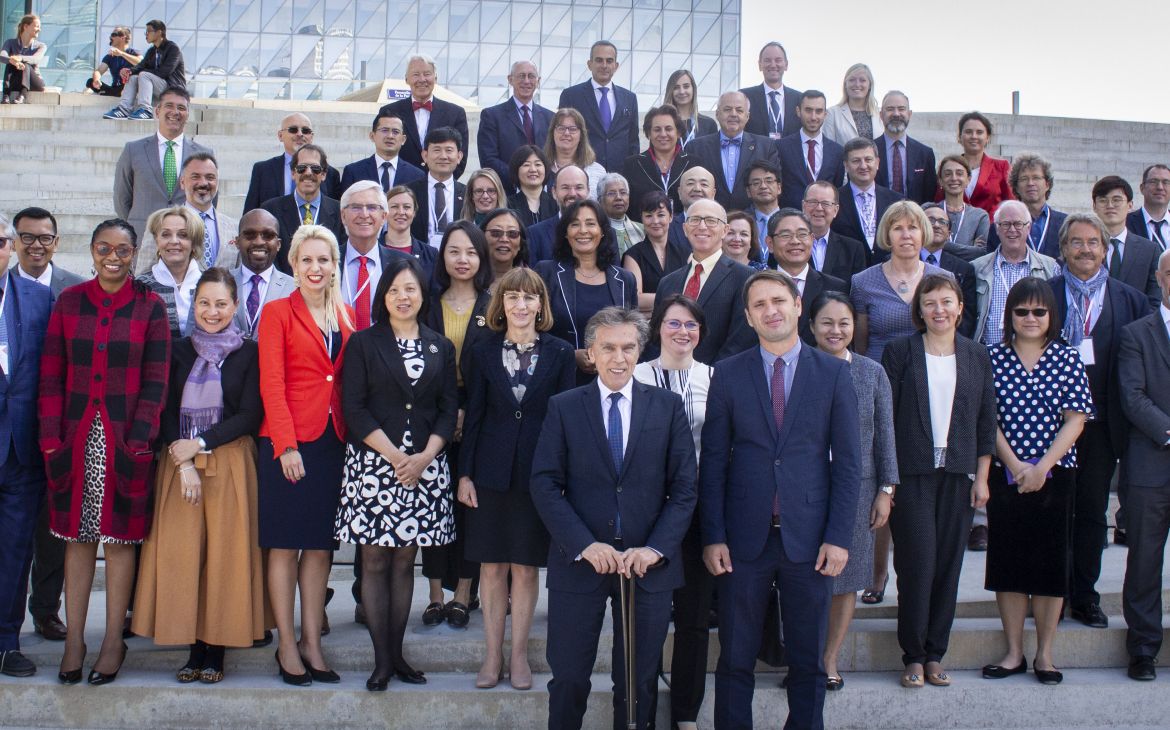For UNITAR’s Division for Multilateral Diplomacy, 2019 was a successful year as we launched new initiatives, explored unchartered thematic areas, and built strong partnerships in advancing our mission of enhancing the capacities of different stakeholders and of levelling the playing field in multilateral settings. We engaged with a wide audience through our activities, going beyond international affairs professionals, diplomats and government officials to also include students and young professionals.
This year, we were pleased to host the first edition of the World Negotiation Day on 25 September 2019 in Geneva, Switzerland, in partnership with the International Negotiation Agency (ADN Group). The event brought some of the most esteemed bilateral and multilateral negotiators together and was marked by insightful and crucial discussions on topical themes such as critical negotiation and conflict de-escalation, climate change negotiations,the role of women in peace-making and peacebuilding, and the significance of public-private partnerships in achieving consensus within multilateral negotiations.The event concluded with awards for the two best negotiators of 2019, H.E. Mr. Salim Baddoura, Permanent Representative of Lebanon to the United Nations and H.E. Mr. Wael Aboulmagd, Egyptian Ambassador, G77 chair during Katowice COP.
The Division for Multilateral Diplomacy also launched two new e-Learning courses in 2019 – Diplomacy 4.0 and Multilateral Conferences and Diplomacy for Small Island Developing States (SIDS) and Least Developed Countries (LDCs) Negotiators. Diplomacy 4.0 aimed to redefine the traditional understanding of diplomacy as largely human-centric to a more 21st century understanding of the concept that recognises the rapid developments in information communication technologies, artificial intelligence, cybersecurity and internet governance. The course on Multilateral Conferences and Diplomacy, on the other hand, furthered UNITAR’s mission of leaving no one behind by providing capacity-building support to SIDS and LDC negotiators. The course aims to enhance the participants’ performance as conference delegates, and as a result contribute to the overall efficiency and productiveness of conferences.
Together with Diplo Foundation, Geneva Centre for Security Policy and The Graduate Institute of International and Development Studies (IHEID), UNITAR hosted the 46th International Forum on Diplomatic Training between 18 and 21 September 2019. The forum brought together ambassadors as well as the deans and directors of diplomatic academies and institutes of international relations to discuss important areas such as the future of diplomacy and the critical skills required to succeed in the fast-changing diplomatic landscape, the interplay between traditional and digital diplomacy, and the integration of innovative methodologies and latest learning tools into diplomatic training.
We are also looking forward to launching some more new activities and trainings in the next few months. In partnership with the Global Institute of Excellence, we will launch the inaugural Executive Program in Global Leadership and Business Diplomacy in Hong Kong and Macao. The Executive Program is a unique opportunity for professionals to excel in creating effective solutions at the international level, hone their skills in diplomacy and leadership for the 21st century business environment, and increase their global network and career opportunities. Another partnership built in 2019 was that with the University of Stirling, as together we will launch the first edition of the Master’s in Human Rights and Diplomacy. The Master’s is aimed at helping students gain the intellectual rigour, in-depth critical thinking and practical skills necessary to understand, to question and to participate in current human rights and diplomatic practices.
These are just some highlights of the diplomatic training activities we organised in 2019. In the future, we continue to look forward to embarking on new ventures, building resilient partnerships and providing high-quality training to renew and update knowledge in international affairs and strengthen the multilateral diplomacy framework.




